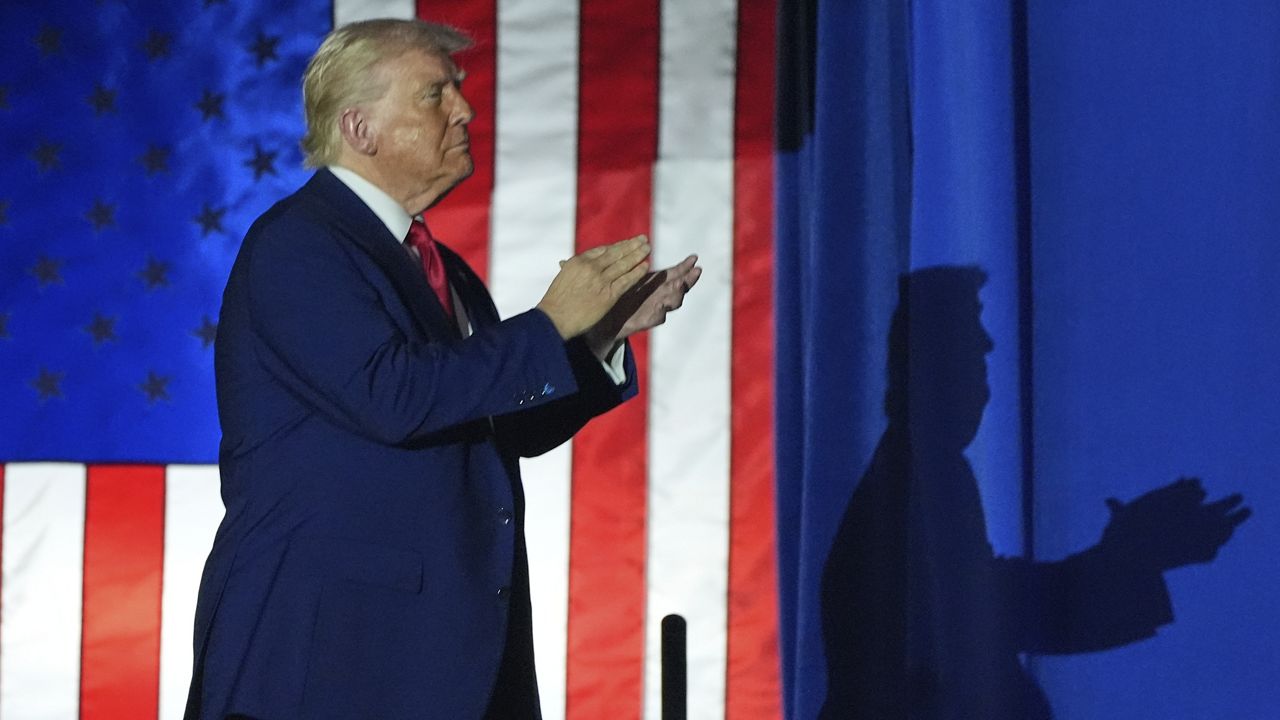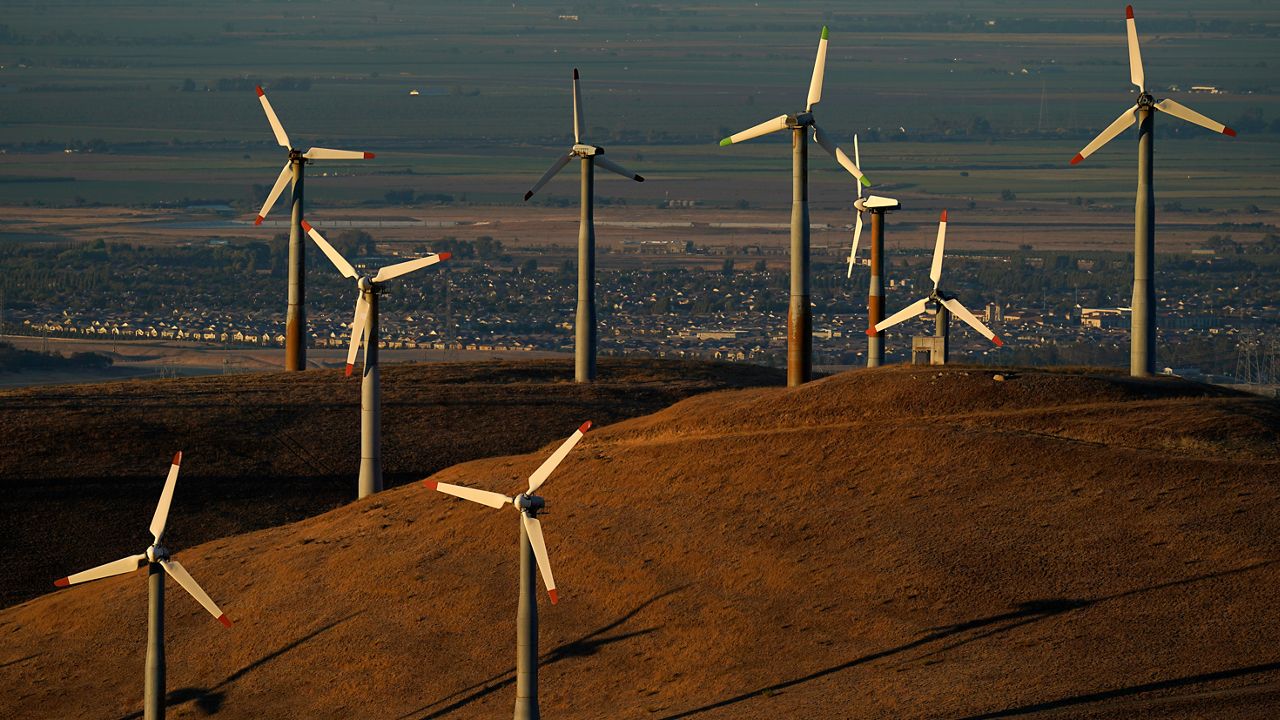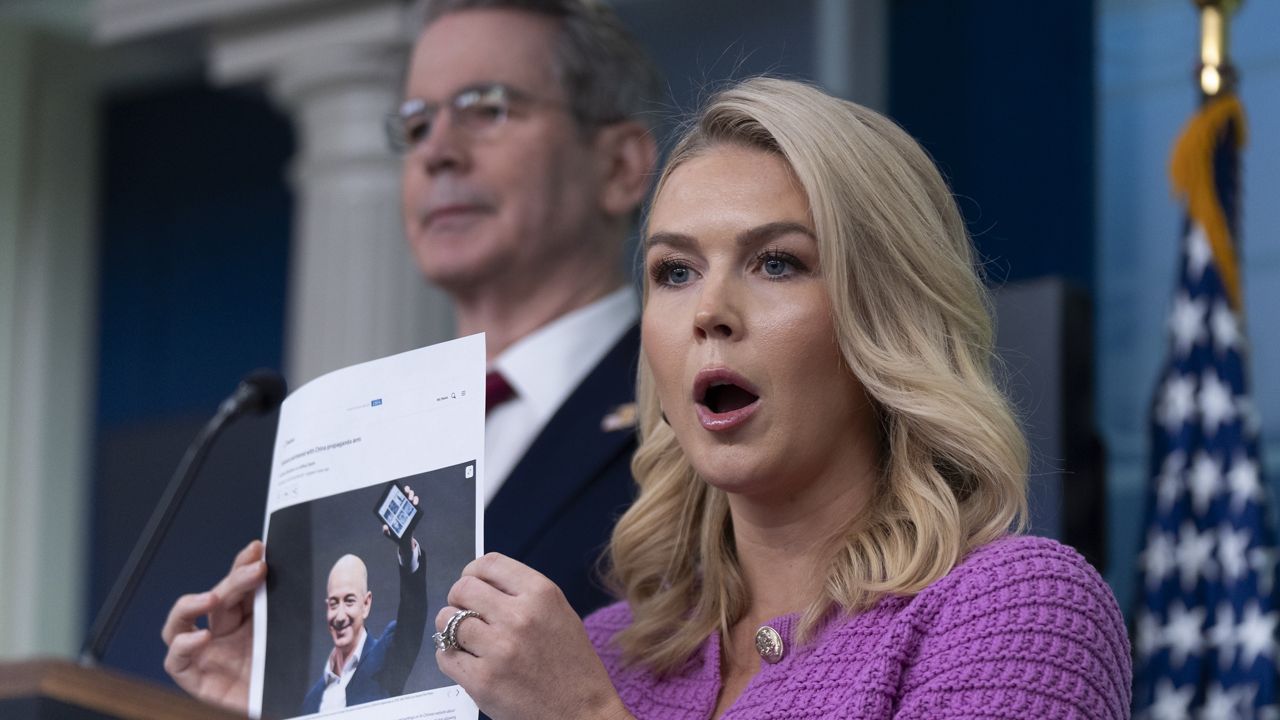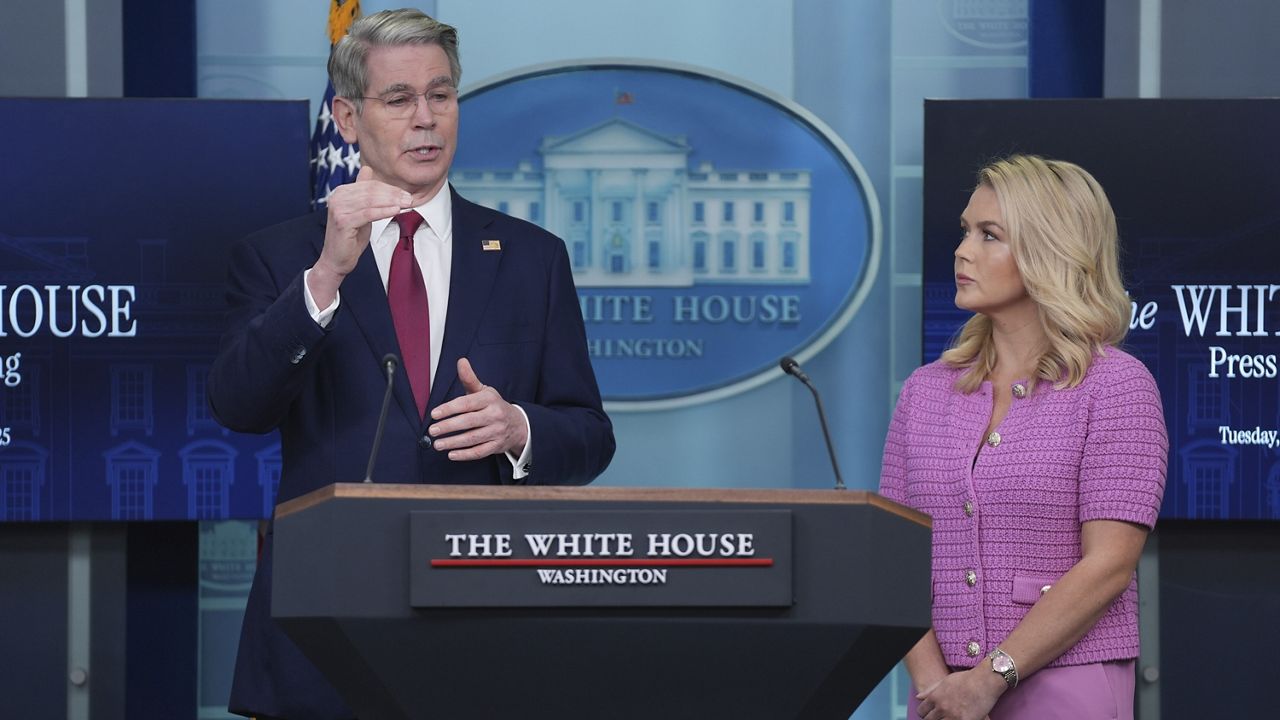On Monday, after delivering a speech at the White House about the designation of 31 communities as technology hubs, touting the innovation the move will spur and the jobs it will create, President Joe Biden apologized for having to leave the event to go to the Situation Room.
"I apologize I have to go to the Situation Room with another issue that I have to deal with,” Biden said to conclude his remarks.
Around that time, news was breaking about Hamas’ release of two additional hostages that were being held in Gaza as the war in Israel rages.
It was a clear display of what the president is balancing as he seeks to convince voters to give him another four years in the White House.
Less than two weeks away from the one-year mark until the 2024 presidential election, Biden is navigating a fresh war in the Middle East and engrossed in convincing the House – with a relatively little-known, newly-elected speaker – to continue providing assistance to another war in Ukraine.
“It's just the reality of where we are,” White House Press Secretary Karine Jean-Pierre said about the focus on foreign affairs at a press briefing just before Biden’s event on Monday.
At the same time, she emphasized: “There are incredibly important issues that are top of mind for Americans that the President is not going to stop talking about.”
The White House this month, along with other domestic policy announcements, highlighted billions of dollars in funding it is allocating to strengthen the nation’s electric grid as well as investments in the creation of hydrogen and technology hubs – signaling it is still trekking ahead with an issue that has often taken a key role in the campaigns of incumbent presidents running for reelection: the economy at home.
In fact, administration officials this month embarked on the third installment of their “Investing in America” tour, setting off across the country seeking to sell the American public on Biden’s economic agenda under the moniker “Bidenomics.”
It all comes as next month marks the two-year anniversary of Biden signing into law a more than $1 trillion bill that seeks to address one of his key domestic priorities: updating aging infrastructure and investing in public works projects.
The Bipartisan Infrastructure Law, which focuses on rehabilitating outdated roads and bridges, strengthening the electric grid, improving access to clean drinking water and more, proceeded two more legislative wins for the president that have helped shape his domestic agenda: the Inflation Reduction Act and CHIPS and Science Act.
“Some of them are still coming off that page of the planning phase, others are actually physically in construction right now,” Transportation Secretary Pete Buttigieg said in an interview with Spectrum News Thursday about where implementation of the infrastructure bill stands two years in.
“We started to see the very first be completed, for example, the Lehigh Valley Airport in Pennsylvania – the first time I was able to be at a ribbon cutting on a project that benefited from those dollars and the president's infrastructure plan," he said.
Buttigieg said there are about 31,000 construction projects across the country currently receiving funding from the law, ranging from simple infrastructure repairs to major transit transformations. The majority, he said, will “just enter into construction this coming year.”
In California, for instance, the state is receiving federal funding from the law to expand its metro system in Southern California as well as retrofit the Golden Gate Bridge in the event of an earthquake in the northern part of the state. In total, the administration says California has received about $15.6 billion from the Bipartisan Infrastructure Act and Inflation Reduction Act for transportation projects thus far.
In Wisconsin, the existing I-39/90/94 Wisconsin River Bridge is being replaced with two new bridges allowing for traffic to flow in both directions. The route, according to the administration, connects Milwaukee, Madison and Chicago.
“We spent most of last year creating all of the programs that the bill set into motion,” Buttigieg said. “Now, we're actually in a position to move the money and start to see the dirt flying.”
Buttigieg highlighted the jobs such projects will create – a topic Biden often hones in on – saying the investments will spur “a pipeline of opportunities that are going to keep them and their families prospering, now that they've chosen to enter these good-paying career fields like electricians, carpenters, cement finishers, operating engineers, people actually building these efforts.”
But as where the law’s implementation stands two years in comes into focus, polling continues to show the American public are skeptical about Biden’s handling of the economy – even amid what economists consider positive economic indicators, including Thursday’s data showing the nation’s economy grew at a 4.9% annual rate in July through September.
A Bloomberg News/Morning Consult poll released last week showed 49% of voters in seven swing states trusted 2024 GOP candidate and former President Donald Trump’s handling of the economy over Biden’s. Only 35% of respondents in Wisconsin, Michigan, Nevada, North Carolina, Pennsylvania and Arizona, Georgia trusted the incumbent president more.
In August, a poll from the Associated Press-NORC Center for Public Affairs Research found only 36% of U.S. adults approved of Biden’s economic job performance.
When it comes to the Bipartisan Infrastructure Law in particular, Buttigieg emphasized many of the investments are long-term projects with impacts that will not resonate quickly.
“Some of these projects are relatively simple road improvements that can be done in one construction season,” Buttigieg said. Others, he added "even at the fastest possible pace, will take years and years to complete.”
“But that was exactly the point,” he said. “This wasn't about a one-off one-year project. This is creating a decade of infrastructure improvements that we will then be relying on and using and benefiting from for the rest of our lives.”
But, with the 2024 election beginning to fully take shape, Buttigieg said the administration needs to send a clear message to voters on projects that can be hard to connect to acts in Washington.
“It is important for us to do the job of reminding everybody that if you like this new road, this airport improvement, this benefit coming to you – it's there because of Joe Biden's leadership and the bipartisan members of Congress who agreed to work with us,” he said.









